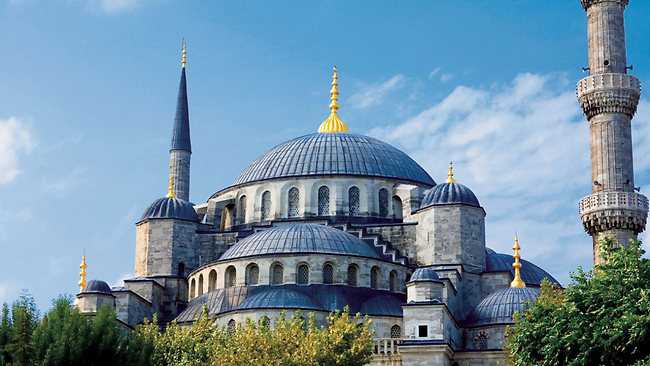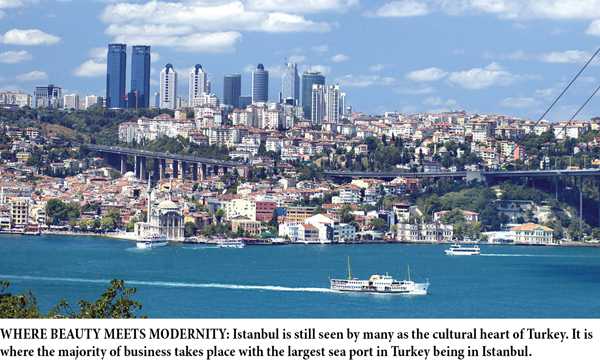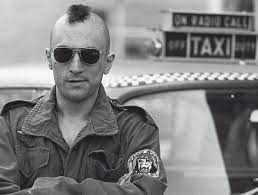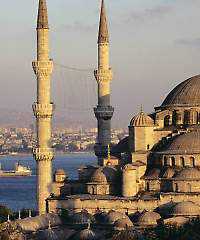Istanbul, the largest and the most populous city in Turkey, is undergoing a tremendous transformation. Such transformation was of course a key cause of the much covered June 2013 protests, sparked by activists seeking to protect a popular park from development into an office complex. Yet the June protestors were more broadly rallying against the neoliberal economic policies which they perceive to be destroying the very soul of the city. Urban transformation in Istanbul has taken three key forms over the past few decades: mega-development projects predominately in the suburbs; urban “regeneration” and gentrification of the old inner city neighbourhoods.
Mega-developments
Istanbul, with its diverse population and rich heritage, in recent years has become a metonym of a “global” Turkey, an idea of Turkey which political actors have sold their power, ideology and culture to transnational and national capital. In the 1980s, urban development became a key source for national and international capital accumulation, seen in large-scale real estate projects in and around the city, such as gated communities, high-rise FIRE (finance, real estate and insurance) sector business centres, shopping malls, and various tourist attractions.
The large-scale development projects necessitated vast tracts of land, something lacking in Istanbul’s centre, and thus in order to overcome the obstructions of inner-city Istanbul, developers took to land reclamation in the suburbs and countryside, areas subsequently scarred by construction projects. The north of the city, an area covered with forests, lakes and arable fields, has experienced continuous construction over the past twenty years, of predominately, gated communities, private universities, and the now infamous 3rd Bosporus Bridge. The massive transformation of the north of Istanbul has naturally stirred controversy between locals and the developers and land speculators seeking to drive down the cost of land. In addition, while the north was once marketed to new residents for its tranquil and beautiful landscape, such marketable attributes have since declined due to continuous construction to accommodate those same newcomers.
The Third Bosporus Bridge (under construction) located in the far-north of Istanbul: its development will likely destroy all native forests in the region. It has also caused controversy due to its name “Yavuz Sultan Selim”, an Ottoman Sultan, known for ordering the mass murder of the Alawi population during his reign. This was interpreted by the Turkish media as message from the government to the Alawi population in Turkey, seen as non-Muslims (not real Muslims), and caused unrest among the Turkish Alawi community (photo taken in July 2013)
Regeneration
Urban regeneration is achieved through the wholesale demolition and eviction of existing neighbourhoods, and the construction of new ones, marketed through the discourses of innovation and modernism, in opposition to the “backward and dirty” authentic fabric of the city. The neighbourhoods under threat in Istanbul contain an old and vernacular built environment, and are inhabited by mostly ethnic and religious minorities, and/or the urban poor and working classes. These neighbourhoods and residents face continuous stigmatisation as “people selling drugs, prostitutes and lower-class criminals” a strategy employed in order to reduce housing value for speculation. Meanwhile, people are evicted from their homes, dispersed, and isolated from the social and economic life of the city.
Sulukule is a very recent example of this, the neighbourhood has been inhabited by the Romani for hundreds of years who predominately engage with informal means of employment (collecting waste, making music and selling flowers). Sulukule has now become a neighbourhood divided in two: the first reflects the values, relations and physical fabric of the local people and the second reflects the obsession with the new, characterised by new buildings and people estranged to the local life. The future of Sulukule is unknown, especially whether the remaining locals will establish coalitions with mainstream political actors.
“Wonderland” by Halil Altindere (2013): a short documentary, displayed during the 13rd Istanbul Biennale in 2013, tells the story of young people, played by Tahribad-i Isyan, a hip-hop group from Sulukule who fight back as the kings of their Jungle. The documentary ends with the youth setting fire to a policeman. .
Gentrification
Third, Istanbul is experiencing a similar if different form of regeneration, gentrification, as seen in several old inner city neighbourhoods, and villages across the world-famous Bosporus. These neighbourhoods are permitted to preserve their old urban fabric, yet face mass beautification through restoration and landscaping. The areas are largely inhabited by the urban gentry, artists, intellectuals, academics or those with high cultural capital willing to socialise in art centres, exhibition halls, niche boutiques, and small cafes reminiscent of a Parisian lifestyle. The people with high cultural capital depend on and are fed by a cosmopolitan urban life and prefer to work and live in spaces in close proximity. In this respect, they seek an escape from the unwanted outside of financial centres, shopping malls and gated communities, for them soulless upper-class consumer spaces sanitised from diversity. Ironically, despite their appraisal of a multicultural life, they usually socialise with people similar to each other, and erect symbolic walls around their manicured neighbourhoods. In 2010 in Tophane, a neighbourhood close to the Beyoglu area, the locals clashed with several artists working in the area. The locals were annoyed by artists consuming alcohol and socialising in mixed-sex settings.
Akaretler: The recently renovated Akaretler, the terraced houses, once built for the staff working for the Ottoman Sultans in Dolmabahce Palace. Akaretler, vacant for years, are now being occupied by the urban gentry, and became home for creative and service sectors. This will lead to the gradual gentrification of Besiktas where Akaretler is located, known for its old middle-class inner city market, containing various restaurants and old and small shops run by local people. The gentrification of the area is strengthened by the opening of Shangri-La, a luxury hotel, which would close Besiktas to the middle and lower classes while opening it to the transnational upper classes “enjoying” Istanbul (photographs by the author). In the future Besiktas might face class tensions between the newcomers and the locals. Ironically, Besiktas is also known for its “Carsi” an amorphous group of supporters of Besiktas Football Club, one of the big three Turkish national football clubs. One of the most active supporters of Gezi events, Carsi usually come together during football matches and are known for their leftist-anarchist political slogans.
![Istanbul in transformation 9 basak1[1]_1](https://www.turkishnews.com/en/content/wp-content/uploads/2013/12/basak11_1.png) A better future?
A better future?
What kind of a future awaits Istanbul’s residents, tired of the continuous struggle for control over their own city? At least three obstacles stand in the way of a better future for Istanbul.
First, the mainstream politics is dominated by neoliberal economic policies over the past thirty years which specifically mobilise populist and conservative/religious discourse to win over the masses. In addition, discourses of modernism through growth have become particularly pervasive, crystallised in spectacular mega-urban projects which aesthetically excite the population, yet deliver little of relevance to people’s needs.
Second, unfortunately the environment and urban preservation, currently simply aren’t a priority in the minds of the majority of the Turkish population. Instead, the overwhelming focus is on the basic need of shelter, food and safety. This is not to say protection of the urban heritage and the environment may not in the future become a priority, but currently the issues are seen as a matter for the educated middle-class isolated as they are from mainstream politics. This has unfortunately resulted in the legitimation of ruling parties’ populist urban projects which show little respect for preservation of the heritage of cities.
Third, the political left, those traditionally opposed to environmental degradation and neoliberal economics, is fractured and simply isn’t currently in a position to form any real alternative to mainstream politics. This has resulted in neoliberal politics dominated by financial and real estate sectors, two sectors behind the 2008 subprime crisis which affected Turkey.
Instead, we need a more unified coalition among the left which is able to together call for a right to the city for all. This would include an economy less reliant real estate and finance accumulation and more on mixed production. This new politics could prioritise rehabilitation of deprived neighbourhoods, protection of urban heritage and resources and the creation of urban spaces accessible, knowable and usable by all in the city. Only then can Istanbul have hope for the future.







